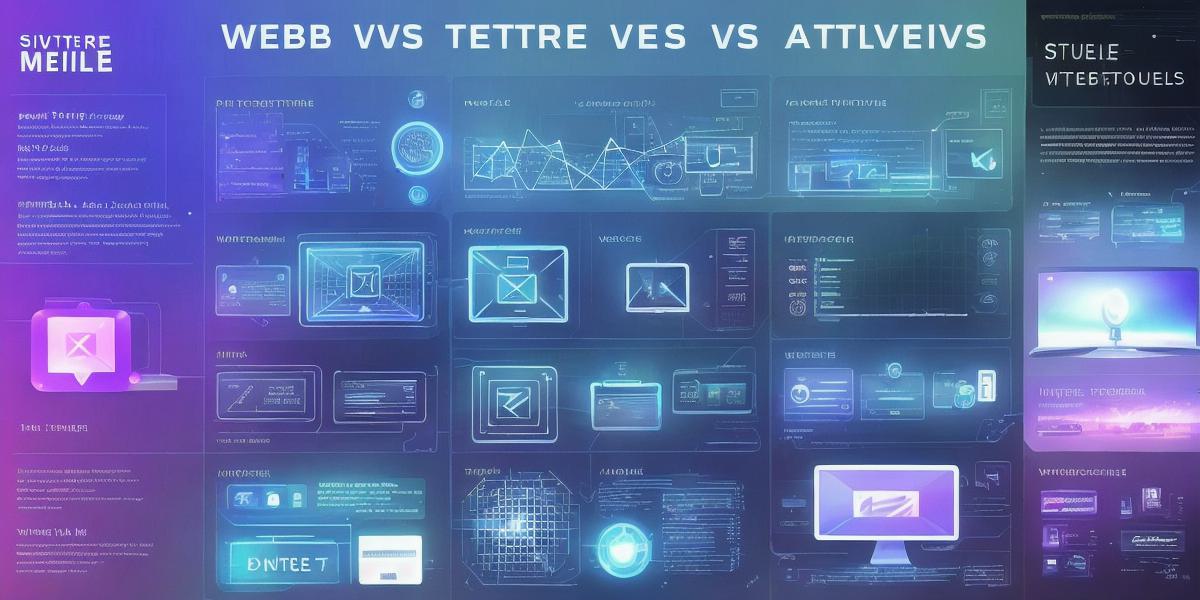Web3 and Web4 are the next generation of the internet, promising a decentralized, secure, and efficient system for communication, information sharing, and data management. In this article, we will explore the differences between these two systems and which one is likely to revolutionize the internet in the near future.
What is Web3?
Web3 is a decentralized version of the internet that relies on blockchain technology. It allows for secure and transparent communication and data sharing, as well as the creation of decentralized applications (dApps) that can operate independently of central authorities. One of the key features of Web3 is smart contracts, which are self-executing contracts with the terms of the agreement between buyer and seller being directly written into lines of code. This allows for a more efficient and secure way of conducting business transactions.
What is Web4?

Web4 builds upon Web3 by incorporating new technologies such as artificial intelligence (AI) and quantum computing. It promises to create an even more decentralized and autonomous internet, where machines can make decisions and interact with each other without human intervention. Web4 also aims to be more scalable and efficient than Web3, allowing for faster and more secure data processing and communication.
Which one will revolutionize the internet?

Both Web3 and Web4 have their own unique advantages and disadvantages, and it is difficult to say which one will ultimately revolutionize the internet. However, there are a few factors that could tip the scales in favor of one or the other.
One potential advantage of Web3 is its ability to provide a secure and transparent system for communication and data sharing. This is particularly important in industries such as finance and healthcare, where security and privacy are critical. Additionally, the use of smart contracts in Web3 could make it easier for businesses to conduct transactions without the need for intermediaries, saving time and money.
On the other hand, Web4’s incorporation of AI and quantum computing could allow for even more efficient and scalable data processing and communication. This could have a significant impact on industries such as manufacturing and logistics, where real-time data analysis is crucial. Additionally, Web4’s ability to create autonomous machines could lead to new opportunities in areas such as transportation and energy management.
Ultimately, the success of Web3 or Web4 will depend on its ability to overcome some of the challenges that come with decentralization, such as security and scalability. However, with continued research and development, it is possible that one of these systems could revolutionize the internet in the near future.
FAQs
- What is the main difference between Web3 and Web4?
Web3 relies on blockchain technology for decentralization, while Web4 incorporates AI and quantum computing. - How do smart contracts work in Web3?
Smart contracts are self-executing contracts with the terms of the agreement between buyer and seller being directly written into lines of code. This allows for a more efficient and secure way of conducting business transactions. - What industries could benefit from Web4’s incorporation of AI and quantum computing?
Industries such as manufacturing and logistics could benefit from Web4’s ability to provide real-time data analysis, while autonomous machines could have a significant impact on transportation and energy management.
